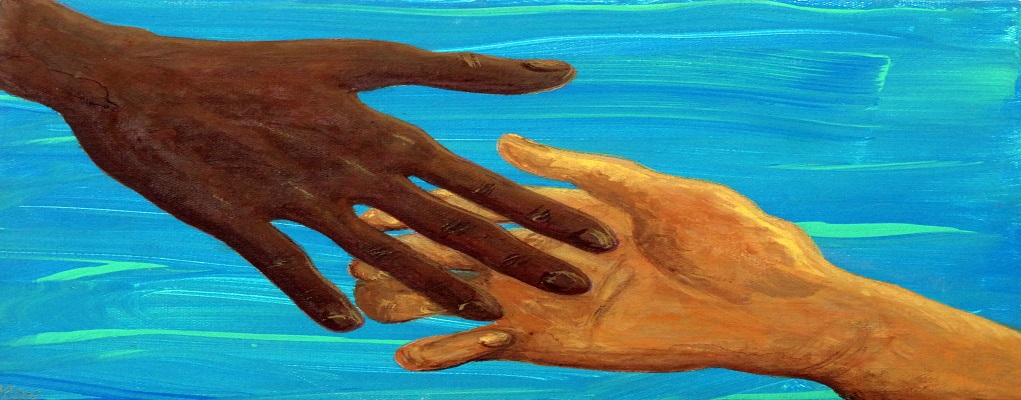I had been out of seminary for 13 years. I was serving as co-pastor of a new multi-racial church and, along with some of the men of that church, was driving to Chicago to participate in a weekend retreat on building the reconciled and reconciling community. Along the way we told stories.
Glen, a laymen with years in recovery for alcoholism, talked about the wisdom of AA – how the 12 steps had guided him through many a storm over the years. As he did he shared the story of a preacher asked by a man in recovery to be his spiritual director. When the pastor agreed to it, the man in recovery inquired: “And may I ask who you go to for spiritual direction?” When the pastor replied that his relationship with God was direct, one on one, with no need for another person to aid him in that journey, the man in AA politely asked to withdraw his request.
Glen didn’t intend it, but his funny story caught me right between the eyes. Thirteen years of going it on my own while hearing and guiding the spiritual journeys of others, I was hiding my own walk with Christ even from myself. My prayer life was too much a matter of public prayers for others – at church, in the hospitals, before meetings (always “a little prayer” so we could quickly get to “business”). Bible study was preparation for sermons or lessons for others more than guide and transforming word for my own life. And “serving,” doing “mission work” had become less about meeting and greeting and loving Jesus than doing the job for which I was paid. At least, that’s how it was beginning to feel.
When we got back to Memphis I called a man whose faith I respected and informed him that he was my spiritual director. I wasn’t asking … and he didn’t say no.
That was 23 years ago. Over two years with that spiritual director I learned that like all children of God I will always need help in my Christian journey. Accountability for spiritual practices, along with sacred community where I can tell the truth, have become constants in my life – not because I “believe in them” but because without them I become a Pharisee that trusts in my own righteousness. Without them I too easily (if unconsciously) imagine I am spiritually superior to a “lay person” simply because I have a seminary education and have had a bishop lay hands on me.
That said, Formation For Ministry at MTS sprang from more than my experience. FFM is rooted in the stories and experiences of a large number of “excellent pastors” who were involved in the Sustaining Pastoral Excellence program hosted by Memphis Theological Seminary from 2004-2010. Those pastors, like me, told story after story of isolation and loneliness. They shared about prayer and study lives that had become so much about “ministry” that, like me, they were no longer sure when it was their faith and when it was their “job.” Weekly Sabbaths were not even distant memories. Stories about tattered marriages and family lives were common. Few of us were honestly being anything close to good stewards of our own bodies, all the while preaching an Incarnational Word to our people week after week.
Over the three years we spent with each other we began to claim the essential role of holy habits and sacred community. MTS then, wisely, decided to make these a priority for entering and exiting students – to create “space” for holy friendships where our stories of discipleship could be richly explored and where we would be held to faith practices that would sustain us in life and ministry over the long haul.
That’s our story. It is the “why?” of Formation For Ministry. Hopefully the seeds we plant by creating such space will sustain excellent pastors and prophets for a church and world crying out for both.
-Billy Vaughan, Director of the Formation for Ministry Program

